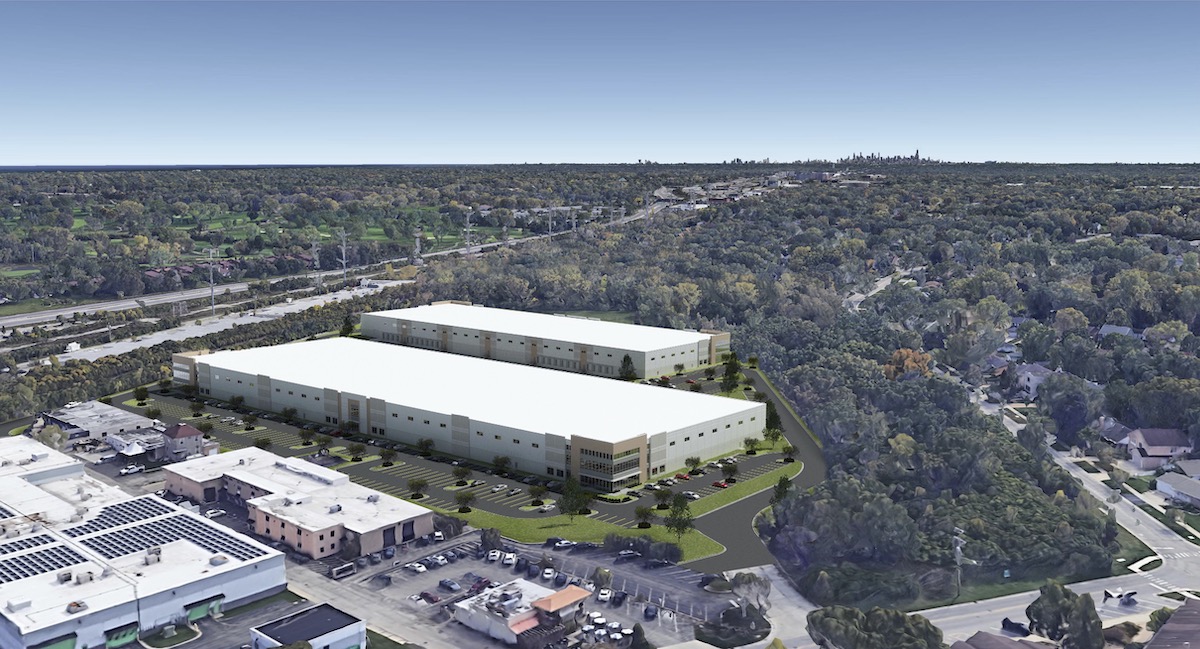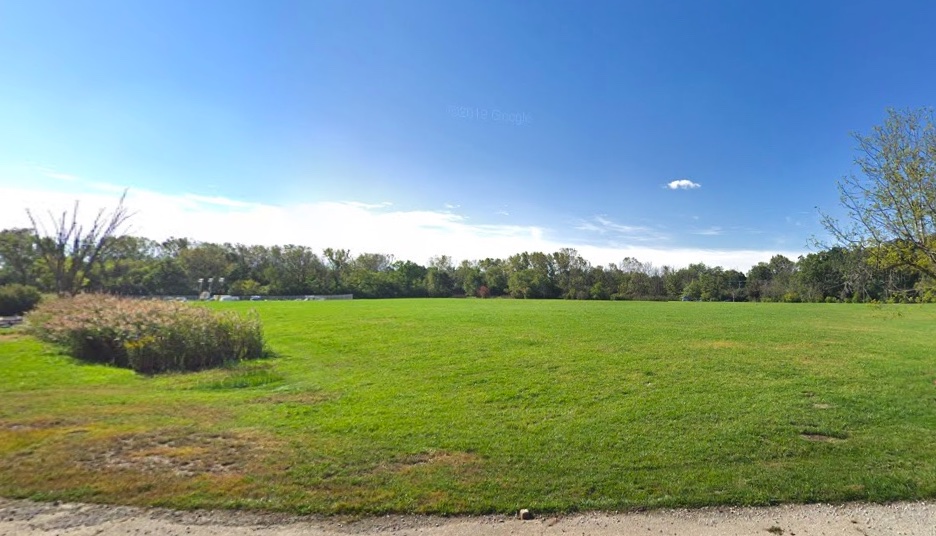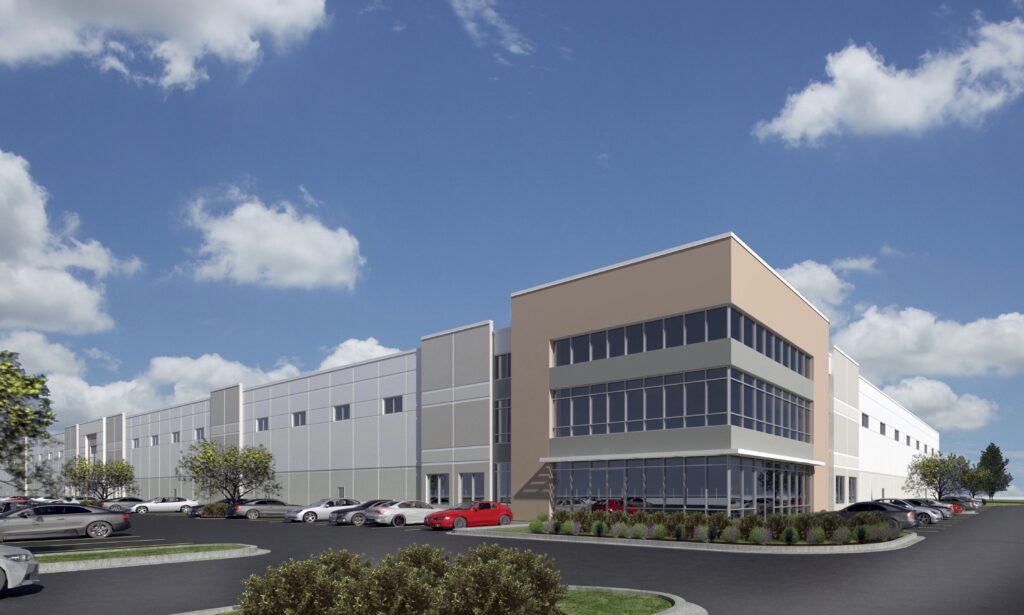
Residents speak out against redevelopment of Solo Cup site. Highland Park officials want more answers.
A proposed industrial center has a long, and likely bumpy, road ahead of it if it hopes to build at an abandoned site in Highland Park.
A developer wants to construct two large warehouses at 1700 Old Deerfield Road, the home of Solo Cup from 1960 until 2008. The large parcel has been vacant since then, and newly formed Red Cup Land Company’s project would be leased for “manufacturing, processing, storage, wholesaling and distribution” purposes.
A redevelopment plan was the subject of a community meeting in July that drew significant engagement from the property’s neighbors, many of whom packed the Highland Park Country Club when the proposal reached the plan and design commission on Aug. 22.
Representatives of Red Cup Land Company presented their concept to the commissioners, who were ready with questions and criticized the applicant’s lack of detailed answers. An hour of public comment capped the three-and-a-half-hour meeting that will be continued at 7 p.m. Oct. 17 at the country club.
“The lack of specificity with all this is extremely troubling, because you are asking for a very intense development,” Commission Chairperson Walter Hainsfurther said. “… This is a permitted use (but) it’s a far more intense than what I normally would expect here. To be honest, I wouldn’t be prepared to vote for this any time soon without that specificity being brought to us.”
Among his requests, many of which were echoed by or originated with residents, Hainsfurther asked the applicant to produce more information on the potential user and uses of the facility, the effect traffic will have on the area and on the nearby Skokie Valley Trail, and noise and air pollution. He also asked for a scaled-back proposal to limit the negative impacts on the area.

The 29 aces of land in question is just west of Route 41 and south of Deerfield Road, neighboring the Highland Park Police Station. Residential neighborhoods exist a couple hundred yards to the west, off Ridge Road, and to the south, starting with Grove Avenue.
Solo Cup closed in 2008 and in 2009 sold to Annenberg Investments and Monroe Investment Partners, according to Crain’s Chicago Business. All the buildings reportedly were demolished between 2010 and 2015.
In 2018, a housing development with up to 500 residential units was proposed for the area, but never made it past a pre-application phase, officials said Aug. 22.
The new request came to Highland Park officials in September 2022 for a preliminary meeting, and then the applicant met with area businesses in November and December about their plan. They met with residential neighbors in July.
The plan is to build one 183,000-square-foot and one 127,050-square-foot building, each up to 41 feet tall. They would include 46 docking bays and two drive-in doors with potential for 31 more (79 total), and would be accompanied by close to 600 parking spaces.
Rich Coulter, an attorney representing the applicant, told the commission that the development would improve a long-vacant site that once contained hazardous material and be a significant improvement over Solo Cup.
“We strongly believe that the impact of these light industrial buildings will pale in comparison to the Solo Cup factory when it comes to issues like air quality, noise emissions, ambient light, traffic, parking and the light,” said Coulter, adding that his team estimates the development can create more than 200 temporary jobs and another 200 permanent jobs while generating $1.5 million in annual property tax revenue for the city.
Project documents show that the developer, based on the size of the facility, estimates 490 total vehicle trips in and out of the facility each day — 61 of those coming from trucks. The trucks would enter off Old Deerfield Road at the train tracks, while other vehicles could come from a separate access point on Old Deerfield Road next to the police station.
Construction of the project, according to the application, would encroach on an environmentally sensitive wetlands area, requiring Highland Park officials to approve an amendment. It would also require the removal of up to 14 heritage trees, which resulted in a lack of support from the city’s forestry department.

Residents’ concerns primarily focused on trucks and traffic, especially with the site’s proximity to area schools, such as Red Oak and Sherwood elementary schools and TrueNorth 804, a cooperative that serves students with special needs.
Noise, light, environmental impact, parking and more concerns were also shared with the commission. The commissioners were on the same page, grilling Coulter and company on each issue.
In the end, the commissioners asked for more information prior to the potential Oct. 17 session and also questioned the need for such a development.
“This looks like an interstate highway project,” Commissioner Steven Kerch said. “Why put this on a suburban infield site that has immense traffic pattern issues?”
The Record is a nonprofit, nonpartisan community newsroom that relies on reader support to fuel its independent local journalism.
Become a member of The Record to fund responsible news coverage for your community.
Already a member? You can make a tax-deductible donation at any time.

Joe Coughlin
Joe Coughlin is a co-founder and the editor in chief of The Record. He leads investigative reporting and reports on anything else needed. Joe has been recognized for his investigative reporting and sports reporting, feature writing and photojournalism. Follow Joe on Twitter @joec2319


